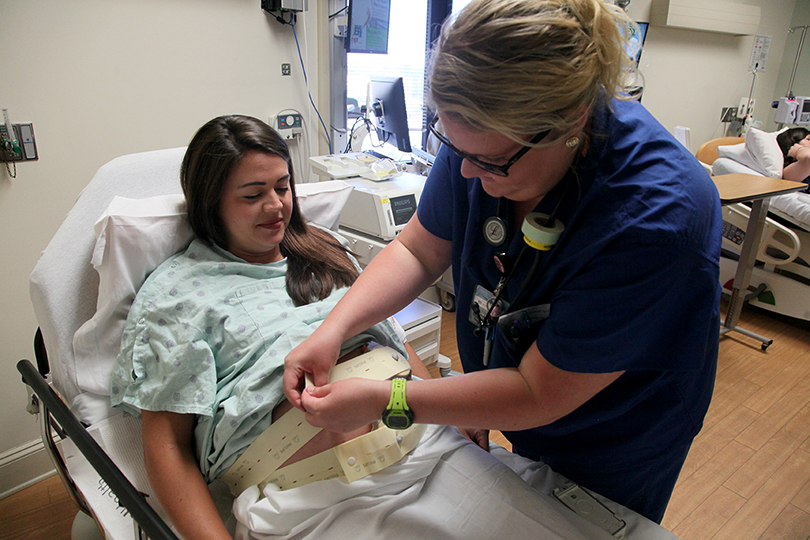Augusta University Medical Center will open Augusta’s first certified 24/7 Obstetrics Emergency Department beginning at 7 a.m. Monday, July 2. The “OB ED,” housed next door to the Labor and Delivery unit, is dedicated to treating emergency, urgent and unexpected prenatal and postpartum issues for moms and babies.
Patients will bypass the first-floor Emergency Department and go straight to the seventh floor OB ED for rapid evaluation and treatment.
“We have put together a highly skilled interdisciplinary team at AU Medical Center to care for the expectant mothers in our region – both during pregnancy and immediately after,” said Dr. Paul Browne, director of Maternal-Fetal Medicine for the Medical College of Georgia at Augusta University and the hospital’s high-risk pregnancy expert. “This team is solely focused on intervening to promote healthy mothers and babies.”
Physicians specializing in obstetrics, gynecology, and anesthesiology are in the hospital and at the ready 24/7 to meet the urgent needs of expectant moms, while neonatologists at the Children’s Hospital of Georgia’s Level IV NICU – the highest level of newborn care outside of Atlanta – are ready to provide advanced care for babies when necessary.
“Due to complications that are not always clear, a pregnancy can take an unexpected turn or a new mom may experience postpartum illness. We intend to provide a place where families may come for immediate help with our new OB Emergency Department,” said Lynne Wallom, nurse manager for Obstetrics.
Wallom said things that could bring an expectant mother to the OB ED include:
- Pain or bleeding
- Pre-term labor
- Unusual breast conditions
- Urological conditions, such as bladder infections or urinary tract infections
- High blood pressure and similar conditions related to high-risk pregnancy
Postpartum symptoms that could warrant a trip to the OB ED include:
- Drainage from a C-Section wound
- Fever
- Headache
- Increased vaginal bleeding
- Infection of the breast tissue
AU Medical Center’s OB ED is designed for women at 20 weeks gestation and up to six weeks after delivery of the baby.
“We’re focused on providing the highest levels of medical care and comfort for mothers and babies when they need it most,” Wallom said.
 Augusta University
Augusta University




